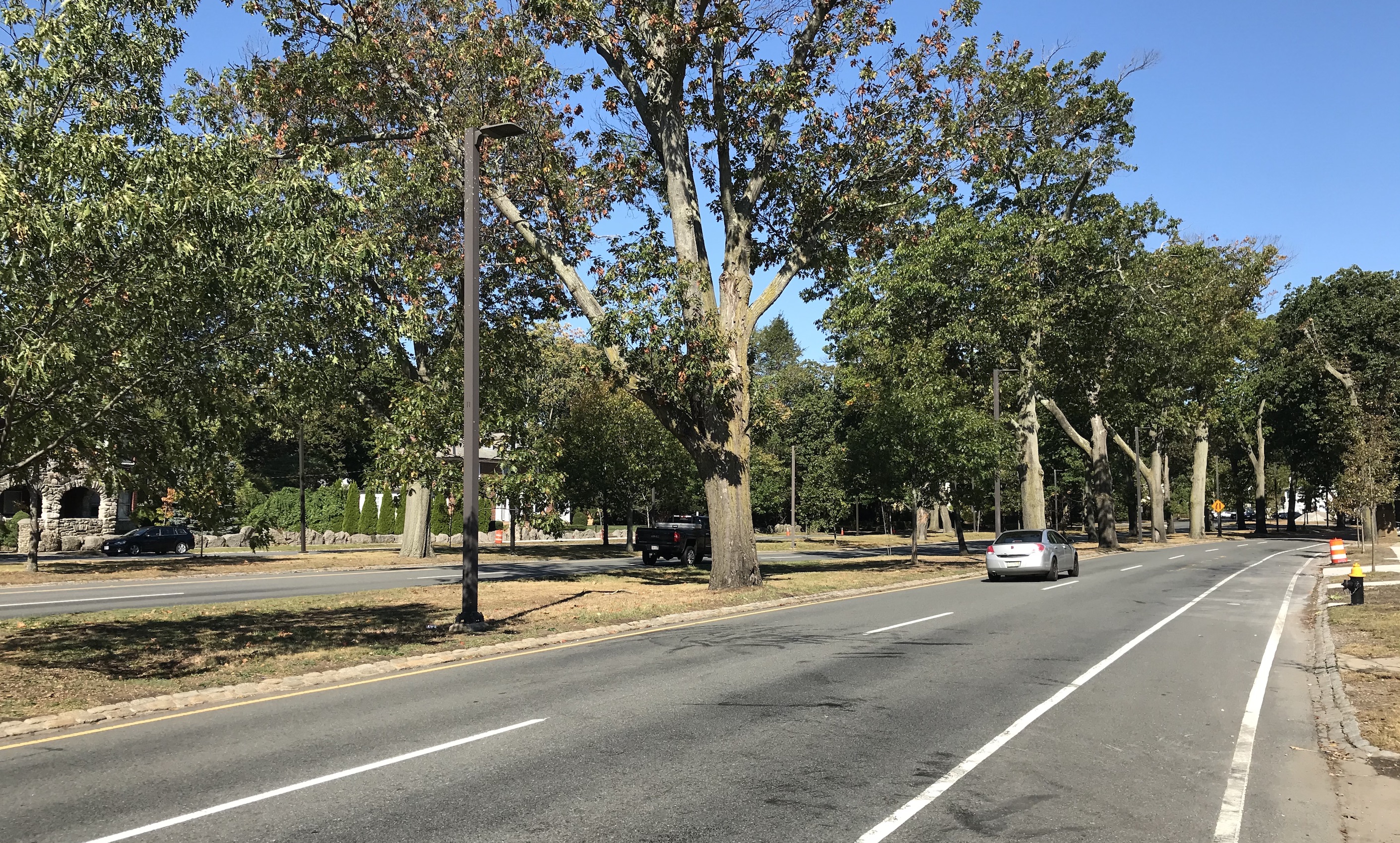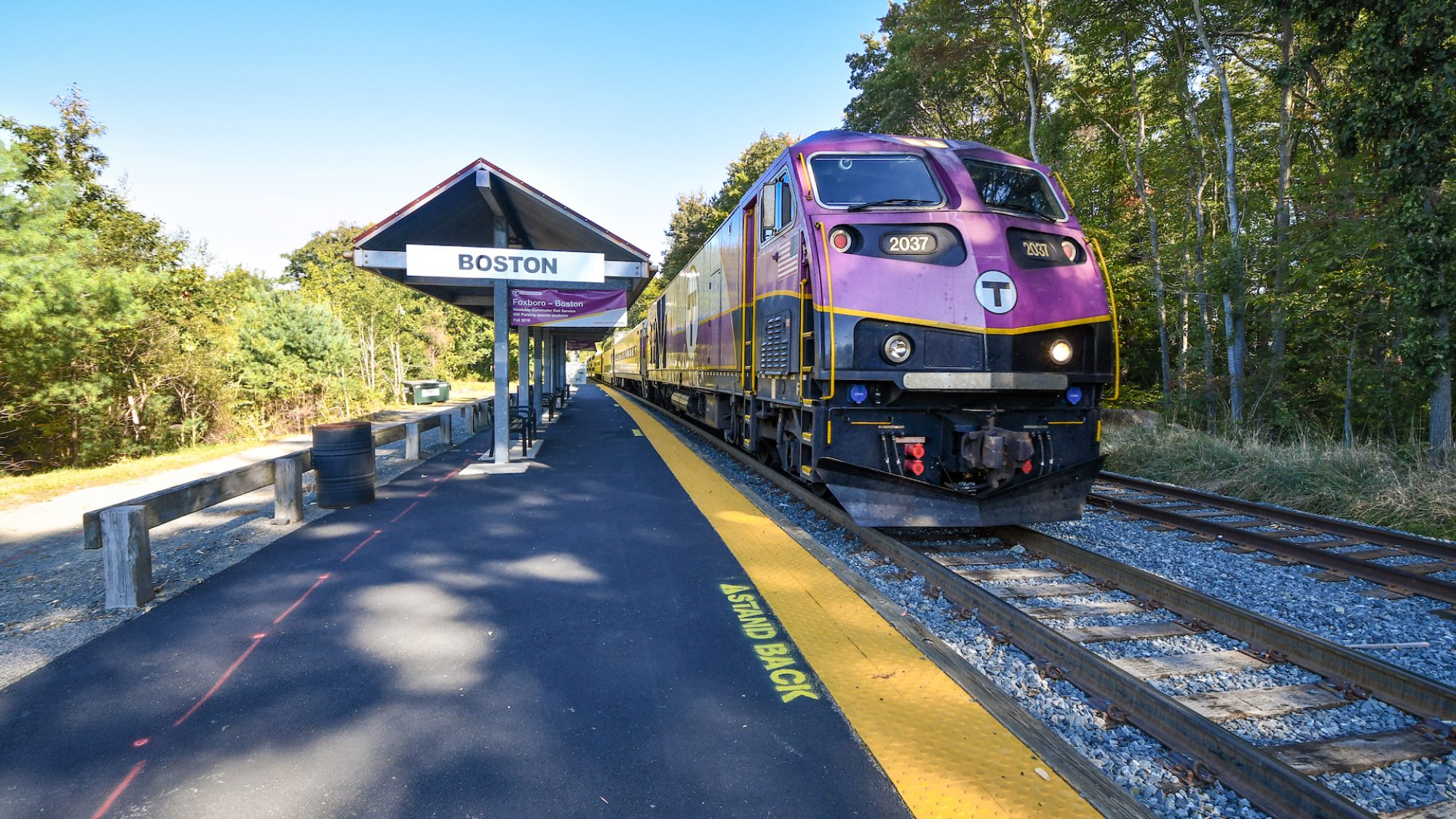A state commission that's been examining management issues at the state's Department of Conservation and Recreation (DCR) is recommending that the agency retain control over its park roadways, but also warns that the agency needs to be more accountable in addressing deferred maintenance issues and accelerating necessary safety upgrades, particularly for pedestrians and people riding bikes.
Though it's ostensibly a parks agency, the DCR maintains many of greater Boston's busiest roadways, like Storrow Drive along the Charles River and Morrissey Boulevard in Dorchester, which occupy public parkland but have been redesigned over the decades to accommodate fast-moving automotive traffic at the expense of safety and access for everyone else.
For years, critics have assailed the DCR for failing to provide basic safety measures on those roadways, and for failing to make any effort to reduce traffic to help the region meet its climate goals.
Many of these roadways also have serious deferred maintenance problems, and there have been doubts about whether DCR has the budget or the staff capacity to take care of all its infrastructure.
In the summer of 2019, the legislature passed a budget bill that included a provision to establish "a special commission to recommend ways for the Department of Conservation and Recreation to improve the management, operations and asset condition of the... resources held by the department," including an analysis of whether DCR assets, "with special consideration given to urban parks and roadways," should be transferred to other state agencies.
A few months later, in early 2020, the Baker administration proposed transferring ownership of four major DCR roads – Storrow Drive, Soldiers Field Road, Day Boulevard and Morrissey Boulevard – to MassDOT, which has more up-to-date engineering guidelines to promote safe access for bikes, pedestrians, and transit users on public roads.
That proposal didn't ultimately succeed, in part because legislators wanted to wait for the special commission to produce its own recommendations on those roadways and others under the DCR's jurisdiction.
Though the pandemic delayed its formation, the commission has been meeting since March, with consulting support from the UMass Donahue Institute. Last week, the Donahue Institute released its draft report of findings and recommendations.
"DCR’s parkways have a documented need for significant safety improvements to reduce accidents and injuries, especially for cyclists and pedestrians, as well as improved accessibility for the disabled," write the report's authors in their draft report.
However, the Donahue Institute asserts that promises contained in the recent (and significantly delayed) Parkways Master Plan gives the DCR a viable framework to address those problems.
"DCR’s parkways should remain within the agency and not be transferred," argues the Donahue Institute. "In many respects, the (Parkways) Master Plan serves to remedy past wrongs on the DCR parkways by retrofitting the system to what it should be by providing more space to pedestrians and cyclists."
That said, the Donahue Institute also warned that whether the DCR "can actually implement the improvements included in the master plan is a question mark that will be under close scrutiny."
The conditions on DCR's parkways constituted only a relatively minor part of the commission's work, but they're also emblematic of larger problems at the agency: many of the DCR's other facilities, including swimming pools, campgrounds, and park buildings, face similar challenges from deferred maintenance.
Last month, after BU professor David Jones fell to his death from a broken staircase connecting two DCR parkways in Dorchester, initial public statements from DCR suggested that the agency didn't know who was responsible for the staircase (we eventually learned that the stairs were actually in MassDOT's jurisdiction, likely from a 2009 deal that transferred DCR-owned bridges to the state highway agency).
As we reported later in September, many of the DCR's footbridges across Storrow Drive and Soldier's Field Road in Boston exhibit similar signs of deterioration.
In order to give the agency a clearer idea of its responsibilities and maintenance needs, the Donahue Institute is also recommending that the DCR take a comprehensive inventory of all of its infrastructure using the state's existing Capital Asset Management Information System (CAMIS) database, and use that information to prioritize repair work.
CAMIS "represents a significant improvement and modernization compared to old practices when maintenance notes and complaints were kept on paper," writes the Donahue Institute in the commission's draft report.
DCR has reportedly already launched an "Asset Management Modernization Program" to begin recording its assets in the state's database.
But in a virtual meeting of the special commission last week, several members expressed concern that the project would, like so many other DCR initiatives, languish for want of adequate staff support.
DCR Commissioner Jim Montgomery, who was also attending last week's commission meeting, declined to answer questions about how the CAMIS project would be staffed, who would be in charge of it, or when it would be done.
“We'll work with the AMMP (Asset Management Modernization Program) team to get a clearer picture of where we are in terms of phases and timelines,” said Montgomery.
The special commission and the UMass Donahue Institute are hosting a public listening session on their findings this Thursday, October 21st, from 4 to 6 pm (register in advance via Zoom).
The commission is also accepting public comments on its website, which also includes minutes and presentations from past commission meetings.
Read the DCR special commission's draft report (PDF).
Related stories:






